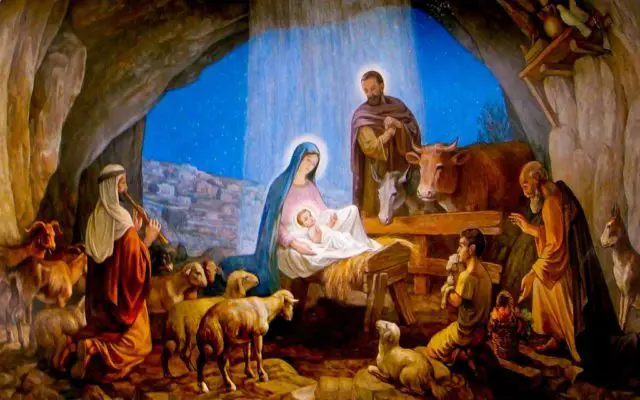Christmas is one of the most important holidays for the Western world, whose meaning – which traditionally commemorates the birth of Jesus -not only has a religious but also social and cultural connotation- with a legacy that has been preserved throughout of the years.
But how does Christmas originate? Was it always celebrated in the same way? Did it always have the same meaning? In this article, experts in the field explain how this religious festival is born and give us a more accurate idea about the true origin of Christmas.
What is Christmas?
To understand the true meaning of Christmas, one should first understand that “it is a cultural product of syncretism”, says the philosopher Henry Llanos Chilet.
Christmas -explains- comes from a series of non-Christian festivities that predated this religion (like the pagans of the winter solstice in the Roman Empire), and that was adopted almost as they were to Christianity when it became the official religion.
The historical origin of Christmas
The historian Ricardo Zavala, author of several works on Christianity, explains that the celebration of December 25th is prior to Christianity: “In the so-called” pagan “world, long before Christianity appeared, this date was the beginning in that the days began to be a little longer, decreasing the duration of the nights, this is known as the winter solstice in the northern hemisphere (and its equivalent in the southern hemisphere is June 24th)”.
The historicity of Jesus Christ
Despite being a festival of religious origin and that is still celebrated today in the Western world, there is a debate about whether the central character of Christmas, namely Jesus of Nazareth, was a historical figure or not.

On this, university professor Manuel Paz y Miño states: “The debate is based on those who believe that Jesus (or Jeshua, a common name in ancient Hebrew culture) did not exist as a real person, but as a fictitious character created from the myths of other demigods or ancient gods”.
“Particularly, I have no problem accepting the possibility that he did exist, at least as a Jewish teacher, but he did not preach any original teaching and he did not have any superhuman or miraculous qualities, it is like accepting today that if there was any Juan Pérez or, if you want, Clark Kent, but simply as a journalist and with no superpower”, he says.
The meaning of Christmas for the Catholic Church
The Franciscan Father Alejandro Wiesse assures us that for Christianity, Christmas is important because “it is the theme of the image of God.” The image of God that Christianity projects are very different from that of other religions because the God in which Christianity believes is just one that is born and, therefore, also dies”.
Christmas represents the humanity of Jesus, a very important aspect of Christian theology, because it gives Christianity a special approach to the human condition, as Father Wiesse explains.
The special conditions of the birth of Jesus are something to highlight, as the priest says, and is that according to the Gospels, it is a child who had no place to be born; He came from another city, and from a family that had been persecuted. These details, for Father Wiesse, illuminate the life of man, believer or not, even in our days.
Christmas today
In the opinion of the university professor Manuel Paz y Miño, at present, the meaning of Christmas has varied considerably.

“Today, in the Western world, including non-believers, Christmas has become especially a family party where you have a special dinner and share gifts and do not mention Jesus at all. It has become a secular party and, also, an expression of consumerism, except for sincere believers who do remember Jesus and share even with their neighbors in need”, he says.
The future of Christmas
“Currently, many people complain about the superficiality of Christmas, that people give gifts, but it has always been that way, even before Christianity”, says García-Belaunde.
Although Christianity is 2 thousand years old and will continue to change, he adds, Christmas will continue to be celebrated because it represents the beginning of a season and the approach of the end of the year.
Whether for religious reasons or not, Christmas is a celebration that celebrates life, that unites families, that remembers that love is the answer for many of the questions that remain unanswered and that most likely will continue to be celebrated for many years more.

